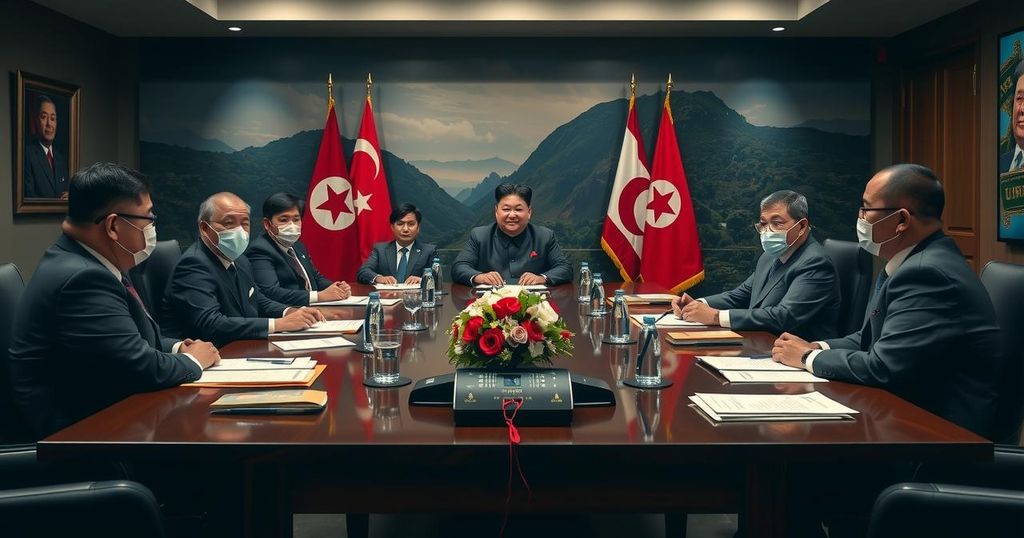President Biden will hold a crucial meeting with Xi Jinping to discuss North Korea’s support for Russia amid the Ukraine conflict. This meeting, occurring at the APEC summit in Peru, marks Biden’s last diplomatic engagement with Xi before transitioning power to President-elect Donald Trump. Key topics include enhancing cooperation against North Korean aggression, regional stability, and the implications of China’s support for Russia.
President Biden is set to conduct his final meeting with Chinese leader Xi Jinping to address pressing international concerns, particularly urging Xi to persuade North Korea to reduce its support for Russia’s military efforts in Ukraine. The meeting will occur during the APEC summit in Peru, coming a little over two months before Biden’s transition from office. With this meeting, Biden aims to strengthen cooperation aimed at countering the threats posed by North Korea while also discussing a broader agenda that includes human rights, technology, and the contentious issue of Taiwan. Both leaders recognize that the current partnership between North Korea and Russia is detrimental, with the U.S. and its allies expressing significant concern over North Korea’s increased military collaboration with Russia. Notably, South Korean President Yoon Seok Yul and Japanese Prime Minister Shigeru Ishiba joined Biden in condemning North Korea’s military assistance to Russia. Despite the complexities of their discussions, Biden emphasizes that it is crucial for China to act against this destabilizing cooperation, which is perceived to threaten regional peace and security. In addition to North Korea, Biden and Xi plan to confront critical concerns surrounding China’s role in indirectly supporting Russia amid escalating geopolitical tensions. Biden’s administration intends to highlight the implications of China’s actions on U.S. foreign policy, with a particular focus on managing Taiwan’s conflict and relations with other regional partners. As Biden prepares to leave office, there remains uncertainty about future U.S.-China dynamics under President-elect Donald Trump, who has signaled a more adversarial stance toward China.
The context of this meeting is deeply rooted in the intensified geopolitical tensions of the past few years, particularly concerning North Korea’s growing military alliance with Russia amidst the ongoing conflict in Ukraine. Biden and Xi have maintained a strategic dialogue throughout their tenures, yet both leaders face challenges related to North Korean aggression, the threat of military conflict over Taiwan, and increasing economic issues. Past meetings have highlighted divergent views on regional security and economic interdependence, leading to critical dialogues regarding China’s responsibilities in global conflict resolution. The backdrop of this meeting also includes the rising tensions related to cybersecurity, human rights violations in China, and the impact of the U.S.-China trade relationship, which has witnessed a significant shift with new tariffs and regulations. As Biden approaches the end of his presidency, his administration seeks to fortify alliances in the Asia-Pacific region to balance China’s growing influence.
In summary, President Biden’s final meeting with Xi Jinping emphasizes the urgent need for collaboration in addressing North Korea’s assistance to Russia and regional security concerns. The discussion seeks to mitigate the escalating threats in the Asia-Pacific region, particularly as the transition of power in the U.S. looms with considerable questions about future Sino-American relations. As both leaders engage in dialogue, the stakes in maintaining peace and stability in a rapidly changing geopolitical landscape are higher than ever before.
Original Source: www.hindustantimes.com






